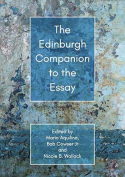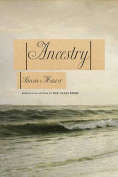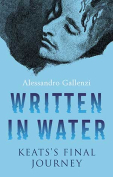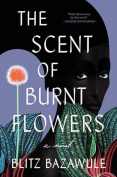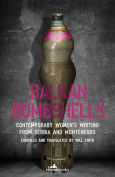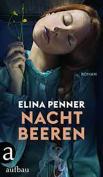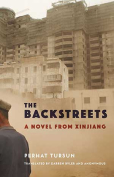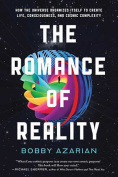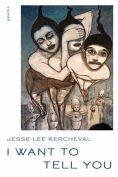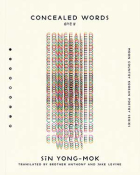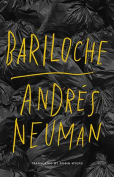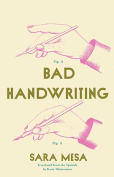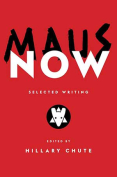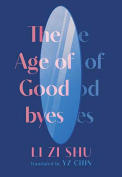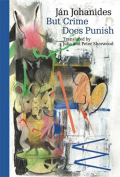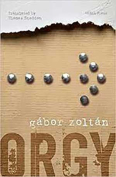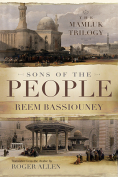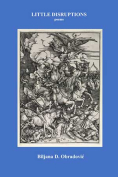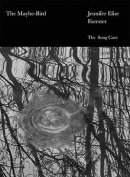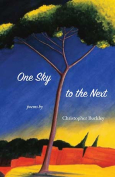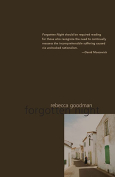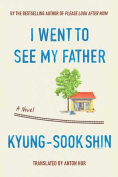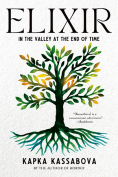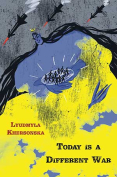The Scent of Burnt Flowers by Blitz Bazawule
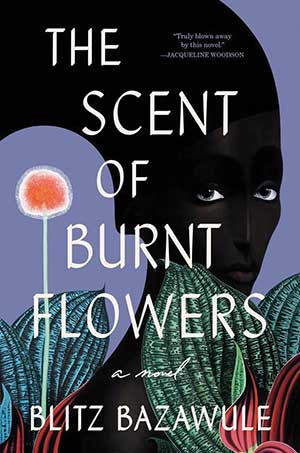 New York. Ballantine Books. 2022. 237 pages.
New York. Ballantine Books. 2022. 237 pages.
Blitz Bazawule’s debut novel, The Scent of Burnt Flowers, is an evocative journey through America and Ghana of the 1960s. Bazawule is an award-winning visual artist, filmmaker, and musician, so it is no wonder that his first novel is an incredibly creative story on multiple levels. The Scent of Burnt Flowers includes everything from a love triangle to magical encounters as well as commentary on race and politics in a particularly turbulent time in American and Ghanaian history. Bazawule’s tale starts in America, as one of his main characters, Melvin, fights back against racist attackers to protect his fiancée, Bernadette. In the aftermath of this harrowing ordeal, the couple decide to flee to Ghana and seek the help of Melvin’s college roommate, who happens to be the president of Ghana—Kwame Nkrumah. Melvin and Bernadette’s quest to find Nkrumah animates much of Bazawule’s plot, but along the way they encounter Kwesi Kwayson, a charismatic musician, and Bernadette must reckon both with her attraction to Kwayson as well as the magical history of her own family.
Bazawule’s background as a filmmaker and visual artist is certainly apparent in this work, as he renders settings and characters with vivid brushstrokes. At its best, The Scent of Burnt Flowers is a compelling, cinematic tale that interrogates the relationship between postcolonial Ghana and civil-rights era America. However, it sometimes seems like Bazawule loses control of his material and attempts to weave together too many disparate ideas. The magical encounters characters have throughout the novel are one of the main examples of this. Kwesi’s magical guitar, Bernadette’s strange link to Mami Wata (an ocean deity), and a group of Ghanaian soldiers who have the ability to transform into animals are all part of Bazawule’s narrative. Bazawule also spends significant time foreshadowing the true destinies of Kwesi and Bernadette, but his conclusion leaves the reader with few satisfying answers. The best works of magical realism are able to maintain a consistent mixture of the fantastic and the real, but the magical events of Bazawule’s novel either have too much of an impact on the plot or they end up feeling inconsequential.
As a whole, The Scent of Burnt Flowers is a worthwhile read for Bazawule’s colorful imagination and his natural storytelling abilities. While some aspects of the novel were either too fleshed out or not fleshed out enough, I have no doubt that Bazawule’s book will make fantastic source material for its upcoming television adaptation, starring Yahya Abdul-Mateen II and directed by Bazawule himself.
Christopher Hebert
Ghent University

